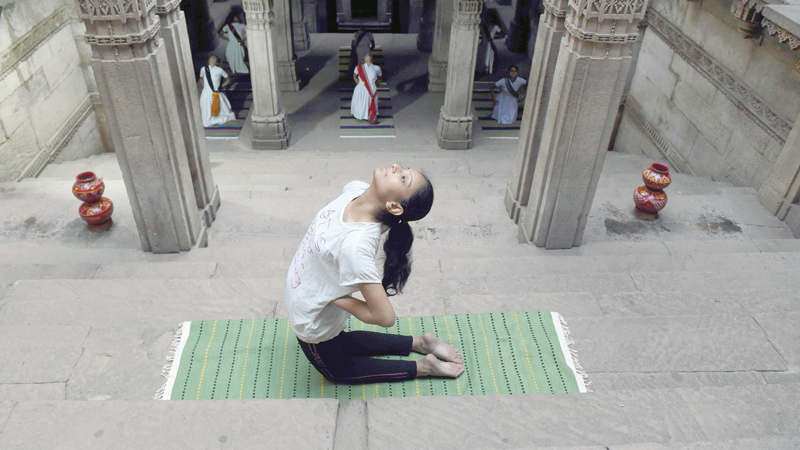

RANCHI, India: The Indian discipline of yoga, involving spiritual and physical practices, is followed in myriad forms today by millions of people worldwide, with an entry in Unesco’s intangible cultural heritage list.
Here is some background for International Yoga Day, marked on Friday for the fifth time.
Transcending suffering: The word “yoga” has its origins in the ancient Sanskrit language and means “to attach, join, harness, yoke”.
This is the notion underpinning the discipline, according to French historian Bernard Sergent, which is to join the intellect of the one practising with the “universal soul”.
Yoga first appeared in ancient texts such as the sacred Hindu epic the Bhagavad Gita, written between the fifth and second centuries BC.
It is born of an “awareness of the unsatisfactory character of the human condition,” says India specialist Tara Michael, author of the book “Yoga” published in France in 1980.
The practice emerged as a way of transcending this suffering.
However in its present-day use, yoga is often no more than a form of exercise, Michael says.
A modern (re)invention: Yoga became known in the West towards the end of the 19th century as it was undergoing a major revival in India under the Hindu teacher Swami Vivekananda.
This philosopher-monk stressed yoga’s rational and scientific qualities in a bid to make the discipline compatible with the West.
His book “Raja Yoga” lays the foundations for a modern and international yoga.
In the first half of the 20th century, Western texts began to detail yoga postures, also known as “asanas”.
The emphasis on these postures and their sequences, such as the famous Sun Salutations, is a recent development, says India specialist Sita Reddy in “Yoga, The Art of Transformation”.
Global phenomenon: Indian metaphysics captured the imagination of counter-cultural movements of the 1960s and 1970s, as epitomised by the relationship between The Beatles and the Indian guru Maharishi Mahesh. — AFP
Oman Observer is now on the WhatsApp channel. Click here



